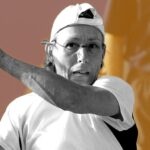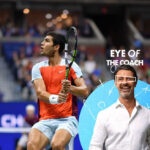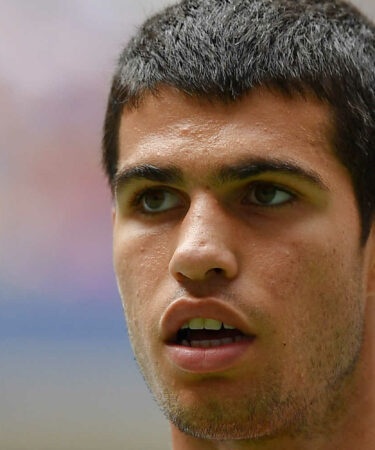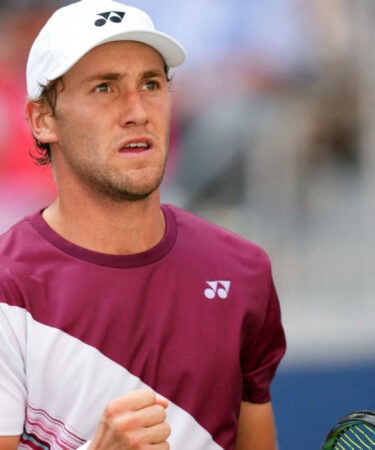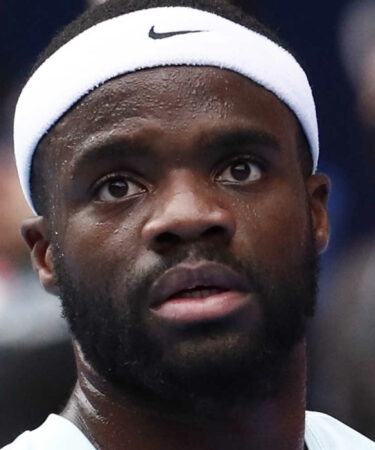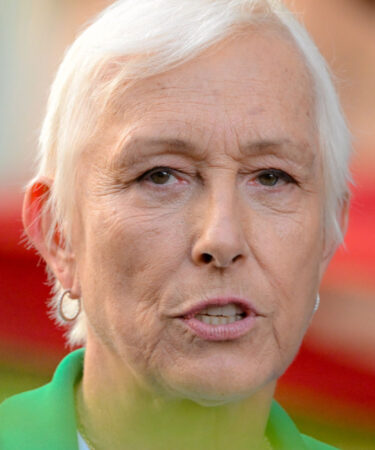From Carlitos to Alcaraz, Episode 5: Physical and mental strength, like no young player in the history of the men’s game
In the fifth episode of our series on the rise of Carlos Alcaraz, Simon Cambers looks at how the teenager has managed to mix physical power and speed with calmness, touch and incredible mental strength
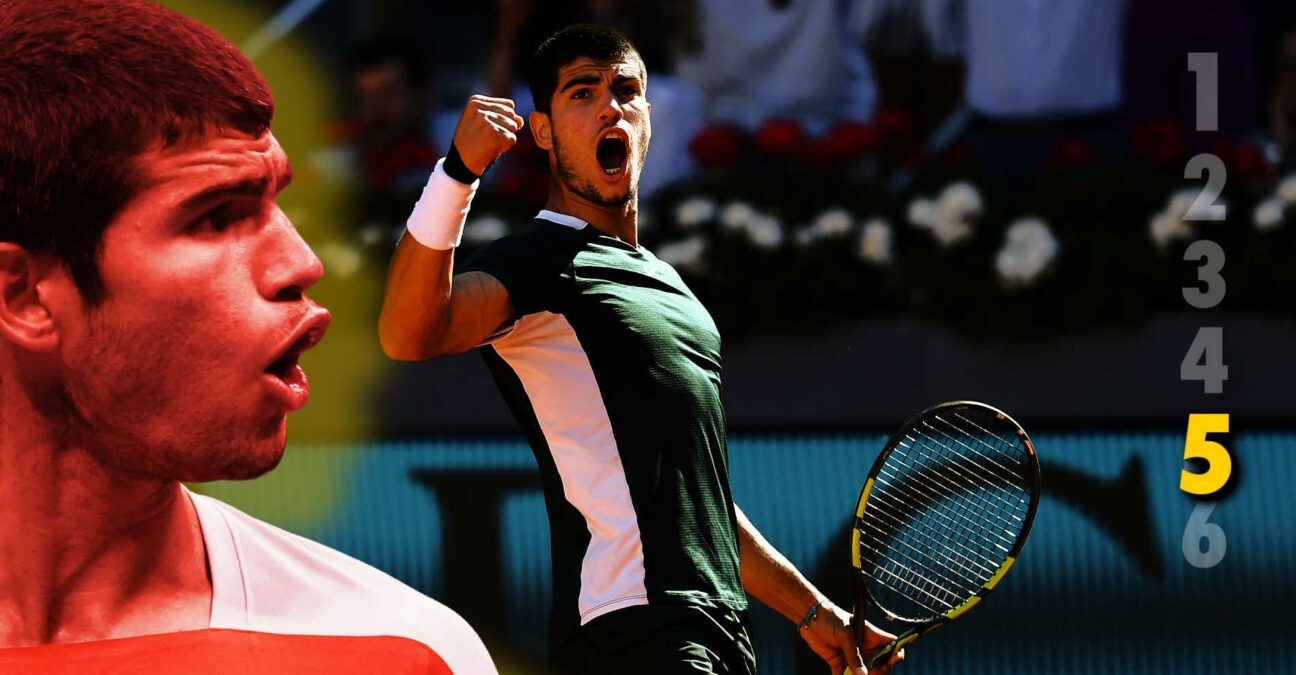 Carlos Alcaraz series by Tennis Majors | © Panoramic / Tennis Majors
Carlos Alcaraz series by Tennis Majors | © Panoramic / Tennis Majors
5/6 : We can talk endlessly about Carlos Alcaraz’s rise, and the bright future that is in store for the surging Spaniard. And when we do it is imperative to remember that his well-rounded tennis sits on a foundation of sound body and mind. This soundness has helped create a nimble competitor who is now able to navigate challenges like only an elite champion can. See how he, his long-time coach Juan Carlos Ferrero and other instrumental characters helped shape the foundation of Carlitos from a very young age.
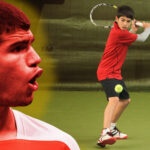
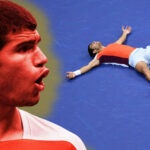
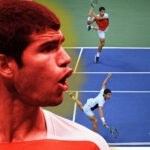
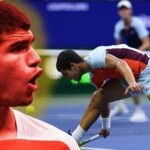
Several years ago, Andy Murray sat down with a group of journalists ahead of the ATP Tour Finals. Along with the usual questions about his chances there, he was asked what he thought we could expect from future generations in the sport.
Murray’s answer was, as so often, right on point. The Scot said he felt that the next player to come through to threaten the Big Four – as they were then – and perhaps take the game to a new level, would be someone who could do everything; defend like a lion from the baseline, attack with a big weapon but also combine physical and mental strength to separate themselves from the rest. In total, someone who could do it all.
We had to wait a few years, but what Murray was describing sounds a lot like Carlos Alcaraz.
In episode five of our series on the rise of Carlos Alcaraz, we examine the teenager’s incredible ability to balance power and poise, in equal measure.
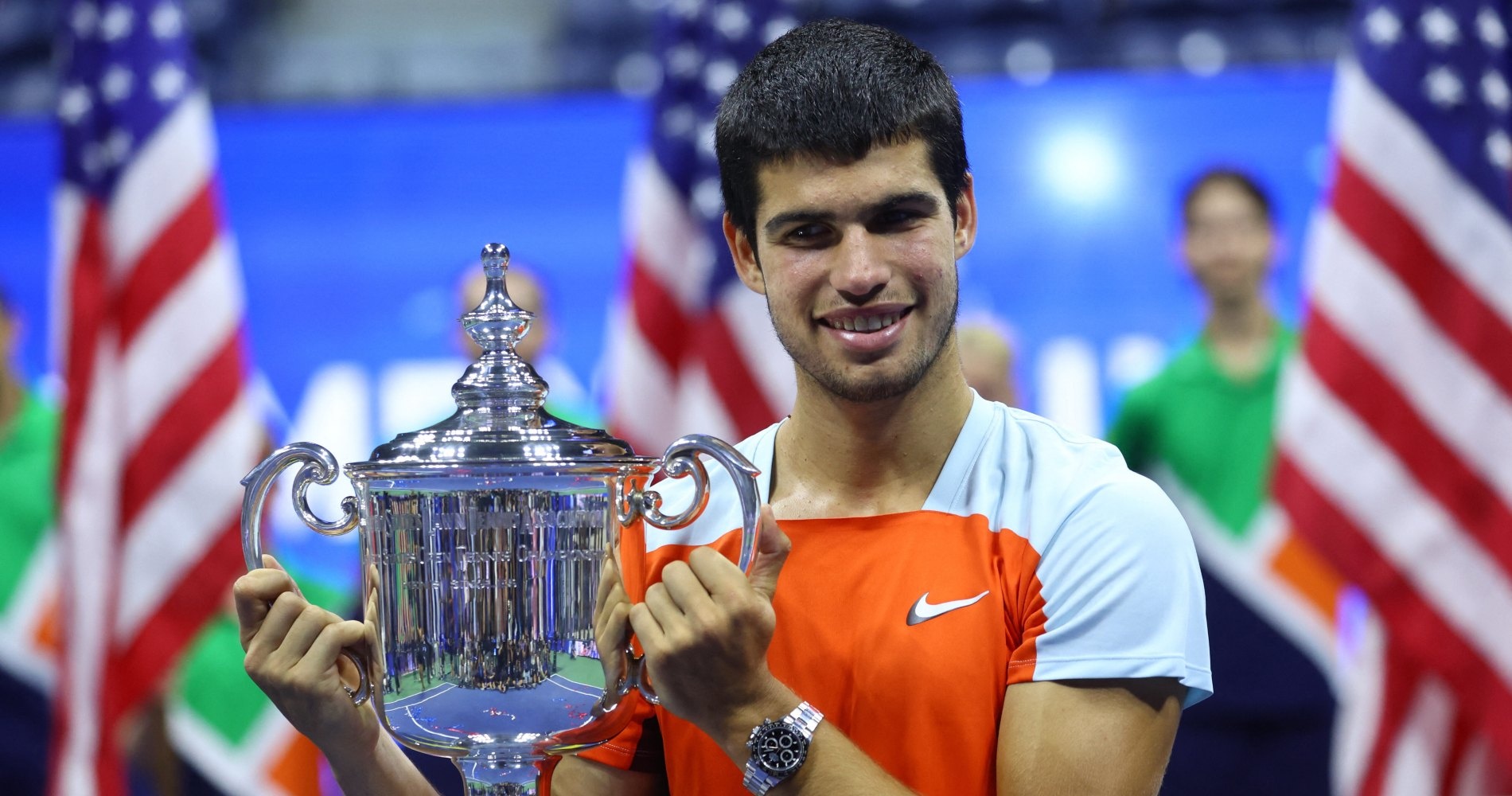
Mouratoglou on Alcaraz: “Super-aggressive, slash creative, with touch”
In his Eye of the Coach column for Tennis Majors, Patrick Mouratoglou summed up Alcaraz perfectly.
“I have never seen a game so complete, with such high quality and so complete at 19,” Mouratoglou said. “No weaknesses. Great from far behind the baseline, great from inside the baseline…great at the net, it’s unbelievable. To develop all this at 19 years old at that level, for me, I’ve never seen.”
“If I have to define his style, he’s super-aggressive slash creative, with touch, which is something we’ve never seen,” the Frenchman said. “The violence with which he hits his shots when he wants to go for a winner is crazy. But also, his ability to hit incredible drop shots or lobs with so much touch, it’s rare.”
Martina Navratilova was impressed in the same kind of terms. “Another thing that impresses me about this young man, besides his power, is his touch,” she said on the Tennis Channel. “For me that’s the best combination of raw power and pure touch that I have seen, usually people have one or the other, but not both.”
Alcaraz’s stunning victory at the US Open gave him a first Grand Slam title and made the 19-year-old the youngest world No 1 in ATP Tour history. We have become accustomed to seeing greatness on court, especially through the feats of Roger Federer, Rafael Nadal and Novak Djokovic, but seeing it at 19, so assured, seemingly so complete, is remarkable.
Physicality: “He’s a Ferrari that needs work”
Mouratoglou has watched Alcaraz mature into a physical beast.
“His physical ability is unbelievable too,” he said to Tennis Majors the day after the US Open final. “The intensity, the explosiveness, the way he hits the ball with so much violence in every single shot, the speed he has on the court, which puts so much pressure on opponents, the fact that when you are attacking him, he can counter attack with the next shot.”
The way Alcaraz pummelled forehands and opponents into submission in New York, it is easy to think that physicality must have come easy for Alcaraz. But for all his natural gifts, those who worked with him as a youngster know how much work he and his team have put in.
Juanjo Moreno is a physiotherapist and rehab specialist who also helps with fitness coaching. In an interview with the ATP Tour in November 2021, Moreno explained what he saw in the Spaniard when he first evaluated him, at the bequest of his coach, Juan Carlos Ferrero.
“When we completed a set of tests, where I have to analyse certain biomechanical aspects and strength deficits that are common in tennis players and certain populational averages, I spoke to Juan Carlos and told him: ‘He’s a Ferrari that needs work.’ And I said: ‘His disposition is very good, but all he has is the bodywork.’ But we were able to work with him and add the engine.
“The next step we took was to refer him to a reputable podiatrist, Carles Ruiz. He called me with his assessment after a biomechanical study on his gait… and he said: ‘He’s a Ferrari.’ Afterwards, Juan Carlos and Carlos came back from the meeting with the podiatrist and Juan Carlos told me that the podiatrist had said the same as me. And we hadn’t spoken about it!”
Alcaraz on his speed: “I don’t know the time, but I would say I’m fast”
Anyone who has watched Alcaraz emerge over the past two years will doubtless have marvelled at the Spaniard’s speed around the court. Mats Wilander says he’s faster than anyone he’s seen on court.
At the French Open this summer, Alcaraz was asked if he had any idea just how fast he was or whether he’d been recorded over sprints. “I don’t know the time,” he said. “But I would say I’m fast.”
That’s one hell of an understatement.
Let’s not forget, Alcaraz had played three five-set matches before the US Open final, a workload that would surely have put him at a physical disadvantage against Casper Ruud, who had enjoyed a far easier run through the draw. But Alcaraz was sharper, stronger, more committed. And his speed, which enabled him to retrieve numerous shots that looked like winners and turn defence into attack, was full-throttle.
“It makes us other players feel like you need to paint the lines to be able to hit a winner,” Ruud said afterwards. “And sometimes even that’s not enough. He’s fast, very quick—he’s a great mover.”
“He hits the ball so hard,” said Frances Tiafoe, the American who came out on the wrong side of a brilliant five-set semi-final at Flushing Meadows. “And I never played a guy who moves as well as him. How he’s able to extend points, incredible. He’s a hell of a player. He’s going to be a problem for a very long time.”
Mental strength, improved and honed over the years
For Mouratoglou, the way Alcaraz has handled the pressure that goes with competing for the biggest titles singles him out above the rest.
“His mental strength is incredible. The pressure, that he didn’t have at the start, and suddenly: boom, all these expectations on his shoulders. He’s able to deliver in those conditions with a crazy pressure, saving match points, being completely exhausted physically.
“The mental resources he is able to find is the most impressive.”
For him to be so young, being so poised in big moments, I take my hat off and I got a lot of respect for him
Frances Tiafoe
Many players have huge power but very few are able to balance it with feather-light touch. Alcaraz has the ability to think clearly in the most intensely pressure-filled moments. His drop shot is a thing of beauty, disarming opponents who are on the back foot because of his power. It’s tennis in art form.
“For him to be so young, being so poised in big moments, I take my hat off and I got a lot of respect for him” stated Tiafoe in New York.
Sports psychology played a huge role
To understand how he does it, it’s worth going back to his childhood, specifically to his time at the Murcia branch of Spain’s Tennis Federation, where he came under the tutelage of Josefina Cutillas, a sports psychologist, who worked with him from the age of 8 to 16, initially in a group setting but soon on an individual basis.
“The objective was, from a playful perspective, to make the children familiar with the concepts, techniques, and tools that are part of every high-performance athlete’s mental training,” Cutillas told Tennis Majors.
“Thereafter, Carlos started to stand out technically, and both he and his family valued the importance of personalised psychological training, taking into account that he was starting to face competitions that were significantly more demanding and he had to be capable of coping with variables that could affect his performance, such as the attention, the concentration, managing the pressure, self-expectations.”
He has the awesome ability not to stay (thinking) longer than necessary, in defeat or victory”
Josefina Cutillas, Alcaraz’s first sports psychologist
For Cutillas, the Alcaraz of today is very similar to the one she first saw. “He has always had some traits that are characteristic when it comes to the achievement of his goals,” she said. “He has always known what objectives he wanted to aim at and how he would like to accomplish them. He wanted to be a professional and he wanted to be the number one and that implied a high level of effort, sacrifice and resignation, some other characteristics that also define him as an athlete.
Warmth and honesty = fan favourite
“Emotionally, he is a very stable and equilibrated person, who had and continues to have the awesome ability not to stay longer than necessary, in defeat or in victory, and this is a highly positive quality in order to manage emotionally all of the experiences that he has been living recently. In fact, since he was a kid, it was already glimpsed that his self-confidence lacked limits, due to his natural ability to overcome difficulties.”
It helps, surely, that the crowds seem to love him, wherever he goes. Some players never share that warmth with a crowd that makes them loved, almost unconditionally, without, seemingly, the need to actively try. Others have something innate that endears them to people all over the world. Alcaraz doesn’t need to wave his arms around to get the fans on his side; they warm to him instinctively.
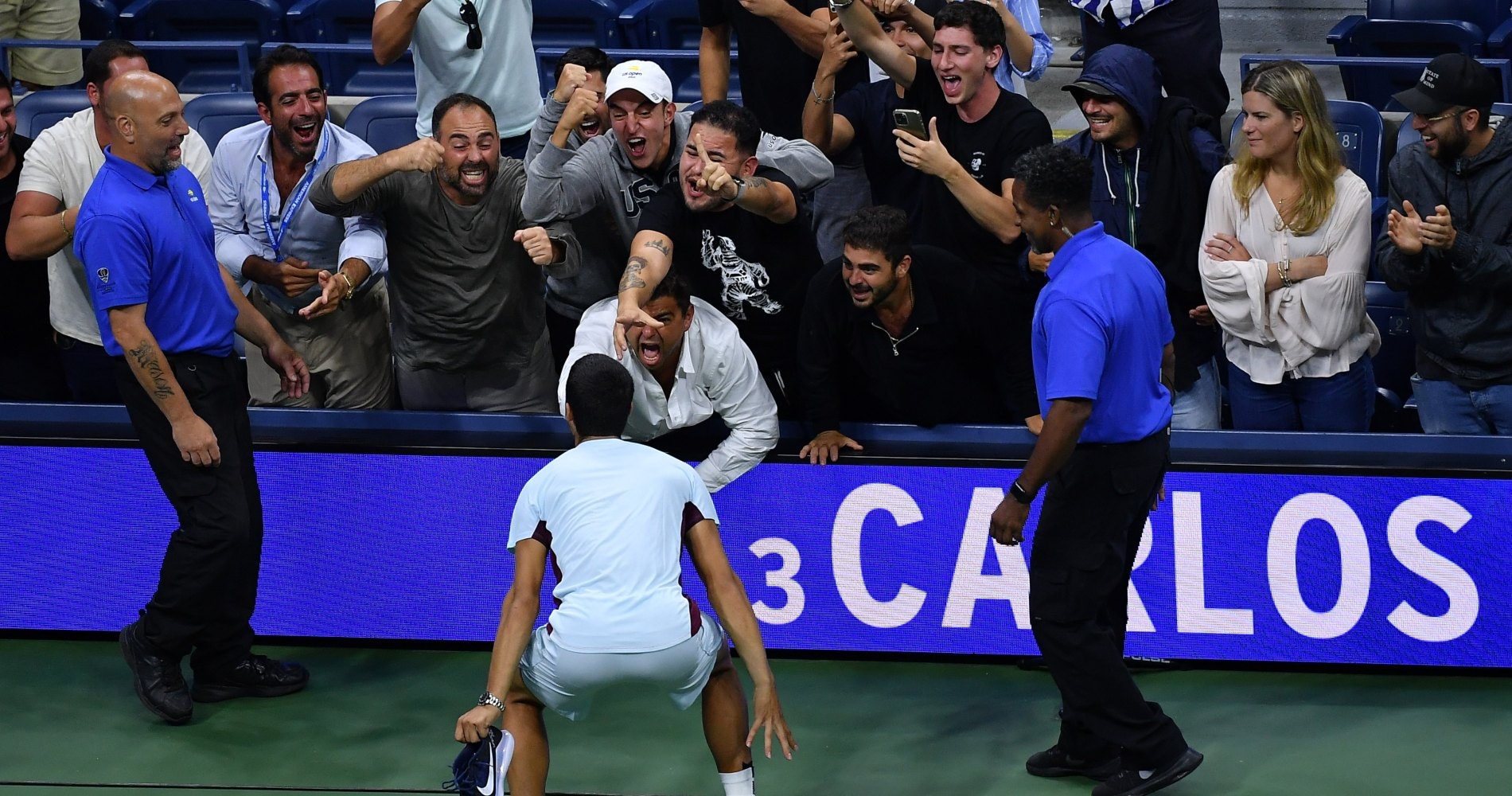
“It is indisputable that Carlos has charisma and is easily able to connect with people because he transmits truth, humility, and closeness and he keeps his essence,” Cutillas explained.
“Especially that essence of the kid that, with lots of effort, sacrifice and joy has succeeded in his dream of becoming the No 1 and that is the mirror in which lots of youths are looking and not only when referring to sports but in other fields.
“On the court, he is sheer passion, and pure positive energy. He is totally devoted to his matches and his public, offering a magnificent show when playing that generates positive emotions in all of us.”
Cervara: “He reminds me of Gustavo Kuerten”
Gilles Cervara, the coach of Daniil Medvedev, told Tennis Majors that Alcaraz’s demeanour is reminiscent of Gustavo Kuerten, the Brazilian who won three Roland-Garros titles, reached world No 1 and whose smile lit up every room he walked into.
“He is No 1 at 19. He has one slam, two Masters 1000. That’s enough to say he has fitness, mental and tennis at an incredible level,” he said. “Every No 1 has them all – if one was missing, he wouldn’t be there. His smile when he is playing and fighting is a signature and reminds me Gustavo Kuerten.”
“But in the very end, I’m still regretting a bit he could not face Rafa or Novak in a Grand Slam final to monitor his level on this aspects, like I was happy Daniil could do successfully [at the US Open] in 2021.”
When the body and mind work together in unison, the results tend to be exceptional. Ferrero has often talked of the benefits of sports psychology and by not being afraid to discuss his own experiences in public, Alcaraz – much like Iga Swiatek – is showing that there is nothing wrong. In fact, there is everything right in working with someone who understands the way the brain works.
Alcaraz, Swiatek boosting profile of psychology and psychologists
“I am very proud of having been able to lay the groundwork and to settle down a powerful and hard mental structure that he has been showing lately,” Cutillas said.
“He has always been a very disciplined boy who has eased up the coaching process because he has always thought that being emotionally strong is a fundamental part of success in life, not only in sports.
“I am glad that Carlitos has achieved his dream. On the other hand, I would like to thank him, as well as lots of other athletes with a lot of media coverage who, thanks to his witness and support, are making visible our work and the importance of the psychologist’s role in the sports world.”
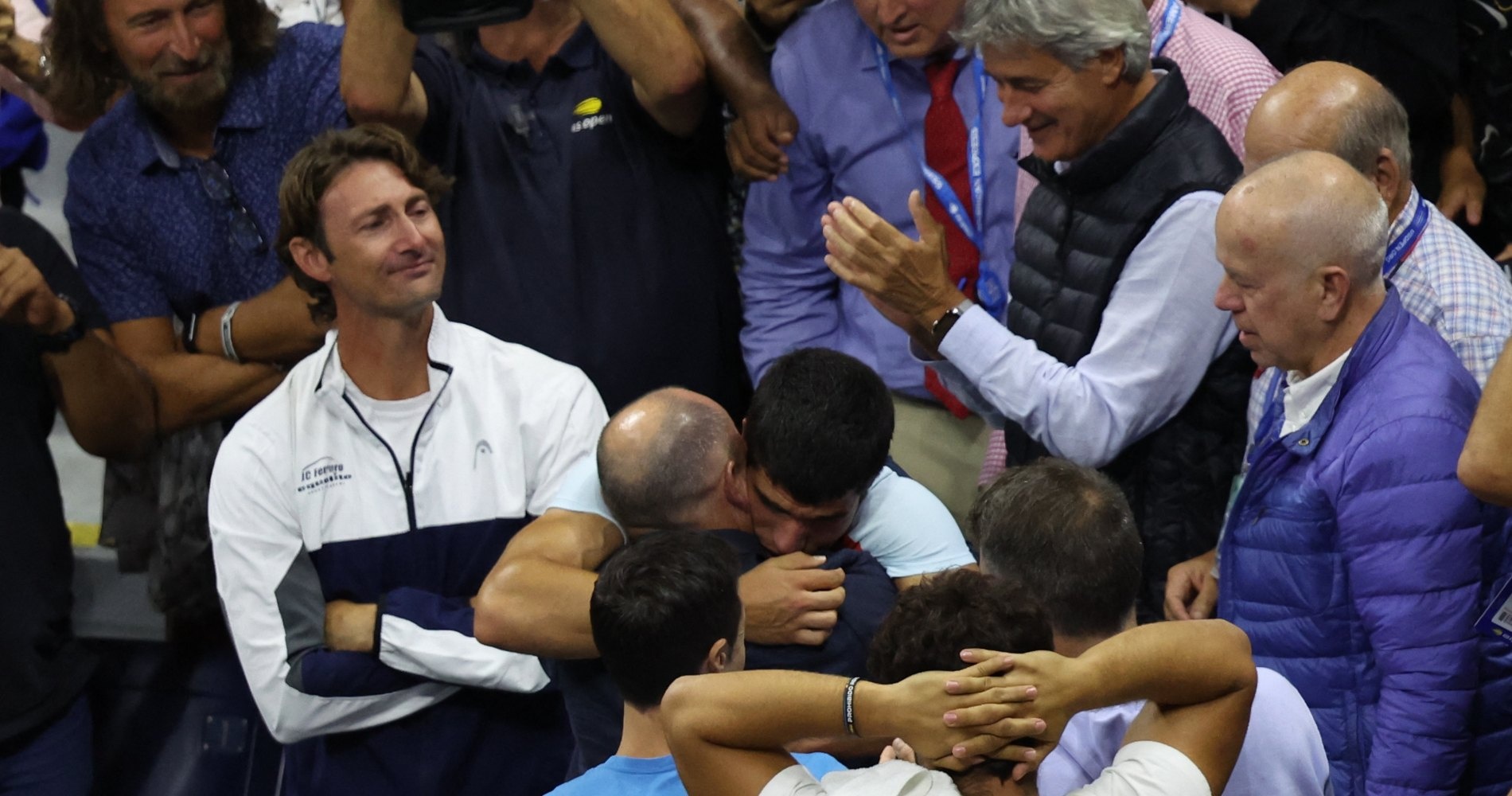
In late 2021, Ferrero said working with a psychologist was important in helping Alcaraz cope with the ever-changing demands of the Tour.
His physical ability, his calm emotional state, and that overriding memory that he is still playing the same game that made him happy as a young boy, has taken him to this point.
The frightening thing, for everyone else, is that there is still much more to come.
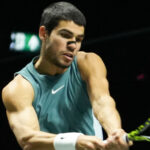
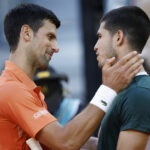

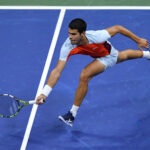
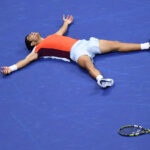
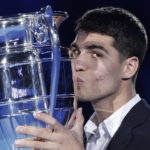
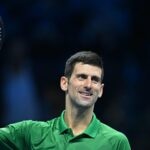
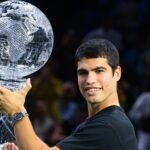
People in this post
More tennis news
Wimbledon, Czech, knife attack: Everything you always wanted to know about Petra Kvitova (but never had time to find out) – updated with 2025 Indian Wells wildcard entry

US Open champion, Great Britain, injuries: Everything you always wanted to know about Emma Raducanu (but never had time to find out) – updated with Dubai fan incident
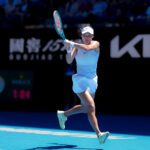
Italian, Wimbledon, injuries: Everything you always wanted to know about Matteo Berrettini (but never had time to find out) – updated after reaching 2025 Doha quarter-finals
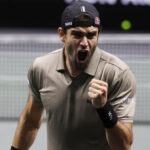
Big sister, ELEVEN, Wimbledon: Everything you always wanted to know about Venus Williams (but never had time to find out) – updated with 2025 Indian Wells wildcard entry

February 20, 1994: The day Martina Navratilova won her 167th and final singles title
